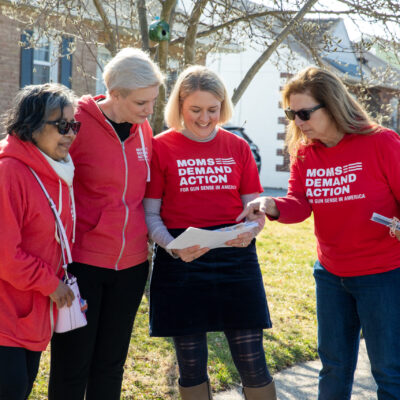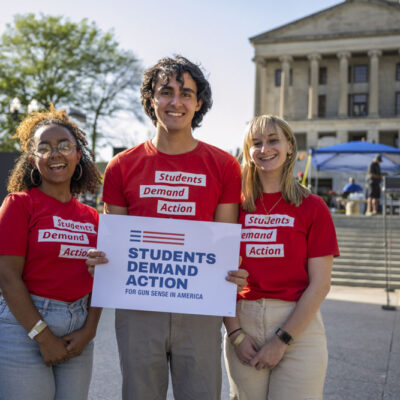Everytown Policy Expert: “Cities Need Investment, Not a Theatrical Federal Policing ‘Surge’”
8.5.2020
As you plan future coverage of gun violence in cities and how to prevent it, I wanted to flag a new piece that highlights systemic causes of gun violence and lays out a three-pronged approach to making cities safer.
Rather that a law enforcement “surge” like the Trump administration has deployed, what cities need is a strategy that addresses root causes of this public health health crisis, Everytown’s director of policy and implementation, Michael-Sean Spence, writes in Newsweek:
To meaningfully reduce gun violence, we need an actual strategy: one that responds to what local gun violence prevention advocates have made clear will actually help. We must stem the flow of firearms into cities. We must invest in proven, community-led gun violence interventions. And rather than ignoring the systemic racism that has caused gun violence to take a disproportionate toll on Black and Latino communities, we must tackle it head-on, by reversing racist policies, and making broad, sustained investments that expand economic opportunity in the neighborhoods hit hardest by this and so many other public health crises.
Spence also corrects the record on the baseless claim that Black Lives Matter protests are responsible for increases in violence, writing that “the recent, concerning spikes in gun violence are not the product of protests, but part of a long-understood pattern.” A clear understanding of gun violence — particularly the causes of its uneven toll on Black Americans — is essential for effectively addressing it, he writes:
The disparities we see in the toll exacted by gun violence did not originate with protests over the murder of George Floyd. They have roots in decades of systemic racism, inequity and deliberate policy decisions. A history of housing discrimination, for instance, has resulted in segregated neighborhoods and underinvestment in Black and Latino communities, which contribute to these disparities. Meanwhile, many of the communities hit hardest by gun violence are also trauma deserts (areas without a Level 1 trauma medical center), a development gap that causes life-threatening delays of care when victims need it most.
To put it bluntly, underinvestment in Black and Latino neighborhoods has created the environments in which public health epidemics thrive.
Click here to read the full piece: Cities Need Investment—Not a Theatrical Federal Policing “Surge.” Please don’t hesitate to reach out with follow up questions or to request an interview.




